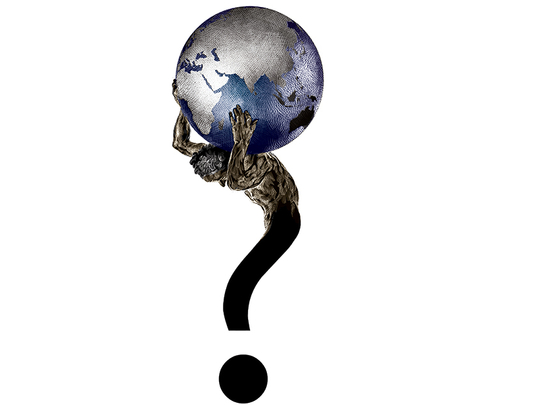
A dangerous number of major international issues require active personal leadership from politicians, which they seem unable to deliver. This creates deep uncertainty about how the world will get through in 2015.
• Will Daesh (Islamic State of Iraq and the Levant) be a bitter memory or will its fighters be marching south?
• Will the euro still have all its members or will it be unravelling?
• Will Russian troops be going back to their barracks, or marching further West?
• Will US President Barack Obama get his deal with Iran or will he be preparing to exit the White House empty-handed?
All these issues need determined international leadership that is conspicuously lacking. Even politicians who perform well to their domestic audiences seem to come apart when they work multilaterally.
Even the exceptional urgency that responding to Daesh requires has not managed to produce a coherent multinational coalition that can fight the group in both Iraq and Syria and this gives the extremists a substantial advantage.
Arab leaders need to come together and agree that fighting Daesh, supporting an inclusive government in Iraq, and supporting the Syrian opposition as part of finding a political solution in Syria, are all linked and should be part of the same linked-up strategy.
The main problem is that such a unified strategy will force some unlikely bedfellows to work together: Iran is part of the effort to defeat Daesh in Iraq, but is also helping support the Bashar Al Assad regime in Syria. Saudi Arabia is supporting the opposition in Syria, but is not welcome in the coalition against Daesh in Iraq.
Sorting this out will require politicians to take a major step to alter the dynamic of mistrust, probably starting with Iranian President Hassan Rouhani changing Tehran’s record of interference in the region.
Far too much hope is invested in German Chancellor Angela Merkel’s personal leadership to deliver two almost impossible successes: Keeping the euro together and Russia within its borders.
She has managed to guide the squabbling euro members to survival, but poor competitiveness from Eurozone manufacturers and Greece’s new combative government look set to restart the whole argument again. Her record offers hope that she might save the euro again, but the survival of the euro relies on that and not much else.
However, Merkel has been noticeably slow to revert to old-fashioned great-power politics to stop Vladimir Putin’s Russia. Her pause after Russia’s invasion of Crimea gave Putin some invaluable weeks, which allowed him to launch his operation in east Ukraine.
Merkel needs to get European armies to sit on the borders and be ready to stop Russian advances. She needs to junk a decade of thinking of Russia as a partner for peace.
Not-so-great powers
Obama has made tremendous speeches in his attempt at international leadership but his administration has actually delivered very little. Secretary of State John Kerry’s efforts to make peace in Palestine predictably collapsed despite his efforts to lead.
It is also hard to imagine how Obama’s shaky leadership might win him both an agreement with the Iranians on the nuclear issue and secure its safe passage through the Republican-dominated Congress. A further factor limiting any international leadership from the US is the looming 2016 election as the candidates prepare for the polls, leaving Obama with an ever-decreasing number of weeks in which he can deliver on his promises.
The United Kingdom is preparing to go to the polls in May, which will probably result in one of the most confused outcomes of any recent election. The two major parties suffer from their disconnect with the voters — the Liberal Democrats for their association with the Conservatives, and the fringe parties score unusually well as the Nationalists, Greens and United Kingdom Independence Party (Ukip) benefit from the febrile mood in Britain.
Minor irrelevance
This domestic confusion will combine with Prime Minister David Cameron’s determination to quarrel with all his European partners, reducing the UK to a minor irrelevance in European affairs and drastically limiting its chances of any global leadership.
The presidency of Xi Jinping is managing a gradual reform of the Chinese system to be more open with a lot less corruption, while also switching from being an export-led economy to a more secure one based on domestic demand.
This requires determined leadership, but the Chinese system is so opaque that it is hard for anyone outside the top echelons of the Chinese Communist Party to know if it is working. So far, no-one understands the “New Normal” policies, so there are still lingering questions over Xi’s leadership, which affects confidence.
The problem is that these issues are genuinely important and have global effects, but none of them are pre-ordained to come out as success. They require individual leaders to take political risks, which they may not be ready to do. But politicians need to grasp that failing to lead is even more dangerous than leading.










